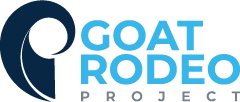Last month I attended the Future of Work Forum hosted by the FOW Community.
My head is still buzzing with insights and ideas about what I can do to proactively react to what they are calling the Fourth Industrial Revolution.
The event was a great reminder of just how much, and how fast, things are changing around us in the workplace and was a fantastic opportunity to learn from some of the best about how to prepare for the future of work.
At the forum I got thinking about what we can do as individuals to embrace the future of work, by developing the skills and the mindset so we can maximize the uncertainty and thrive in an increasingly disruptive world.
Specifically I believe the key is to keep yourself relevant. As Salim Ismail presented in his key note speech at the forum, the volume and pace of change is increasing exponentially making it paramount that you develop a fresh approach to staying one step ahead of the changes. I believe there are 3 ways to do this:
1. Be a lifelong learner
Sandeep Dadlan from Infosys brought the importance of learning to life at the forum by sharing insights from their recent study – Amplifying Human Potential. In the study, Infosys surveyed 9,000 16 to 25 year olds across 9 countries and it was encouraging to see that two thirds of them have a positive outlook on future job opportunities. This is surely correlated with the fact that they are committed to learning? 80% of them agree that the continuous development of their skills is needed to be successful at work. This generation have quickly worked out that when they become old dogs they will have to learn new tricks demonstrated by the fact that they expect to completely relearn their jobs at least three or four times during their career.
The power of learning was reinforced in a recent HBR article by Erika Anderson who outlined the importance of doing new things, looking for new opportunities and aggressively acquiring ‘radically different capabilities—while still performing your job’.
2. Be curious
Traditional hierarchies and silos are common barriers to curiosity in the workplace but those with a curious mind will always find ways to navigate these obstacles. Many of the organizations represented at the FOW Forum are striving to become a connected company by leveraging formal and informal systems to encourage collaboration and innovation. The challenge shared by many companies was getting people to engage with their social collaboration platform of choice, so this represents a great opportunity for you to stand out by proactively using your curiosity to make the connected company a reality in your company.
Being curious includes having an interest in working with other people. Coordinating with others was identified as one of the top 5 skills needed in 2020 by the World Economic Forum Jobs Report. Keith Ferrazzi built on this insight in his session at the forum by outlining the importance of relational awareness to succeed in the workplace of the future.
I was reminded of the importance of connecting with new people when I was recently invited to join four fellow ‘game-changers’ as part of a League of Intrapraneurs action learning set sponsored by The School of Social Entrepreneurs in Toronto. We all worked for different organizations but had a common goal of wanting to use of curiosity to make a difference by driving change in our respective companies. We used our sessions to share our individual stories and used coaching techniques to provide guidance and encouragement to each other.
3. Be yourself
Learning to be yourself is the final way in which you will survive the future of work. There are three key elements to this. The first is having a clear purpose and playing to your strengths in everything that you do. There are many distractions in the world and no shortage of things to do, but if you maintain a focus on your own individual purpose and keep playing to your strengths you have more chance of success. Keeping a journal and having clarity around your personal brand, purpose and goals is a simple way of keeping yourself on track.
The second is to be proactive in making a difference. Ensuring you contribute above and beyond the confines of your job description or performance goals will go a long way to achieving this objective. I speak to many people who fall victim to the ‘it’s not in my job description’ mentality and I am concerned that as the pace and volume of change continues to increase these individuals will struggle to break out of the rigidity of their roles to make the difference they have the potential to.
Finally focus on your own health by creating your own balance. Ellyn Shook the CHRO for Accenture had some great advice for the audience at the Future of Work Forum. With nearly 400,000 employees globally, you can imagine that she has a very busy role but she is committed to a good night’s sleep and has invested in a flip phone so she can still be contacted in emergencies but can avoid being inundated with emails when she doesn’t want to be. A simple technique, but one that ensures she can maintain the right boundaries.
Something amazing is happening in the workplace that requires a new set of skills and a new mindset. It’s never too late to learn so I hope these techniques are helpful in ensuring you maximize this opportunity and thrive in the future of work.

